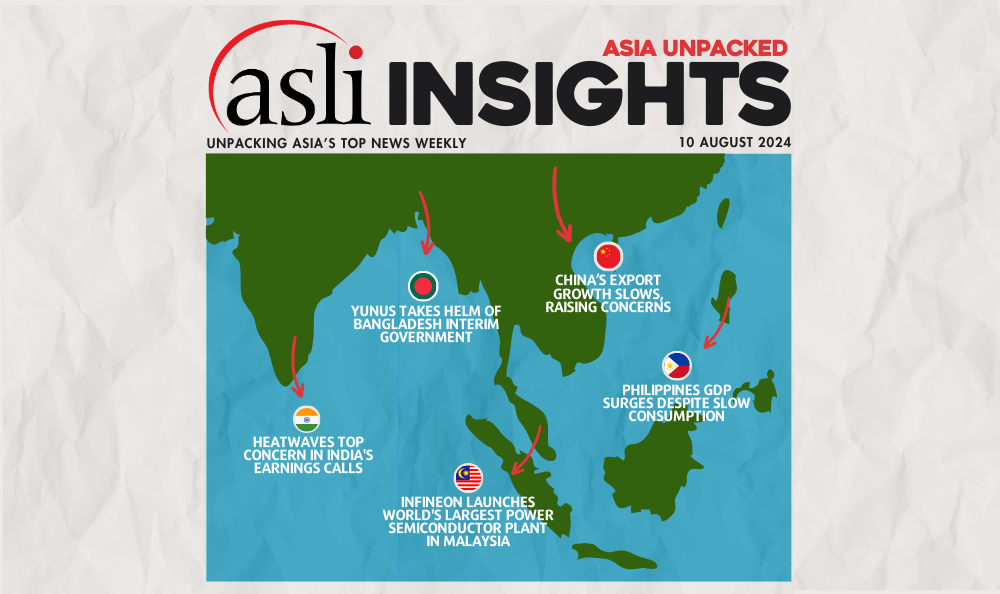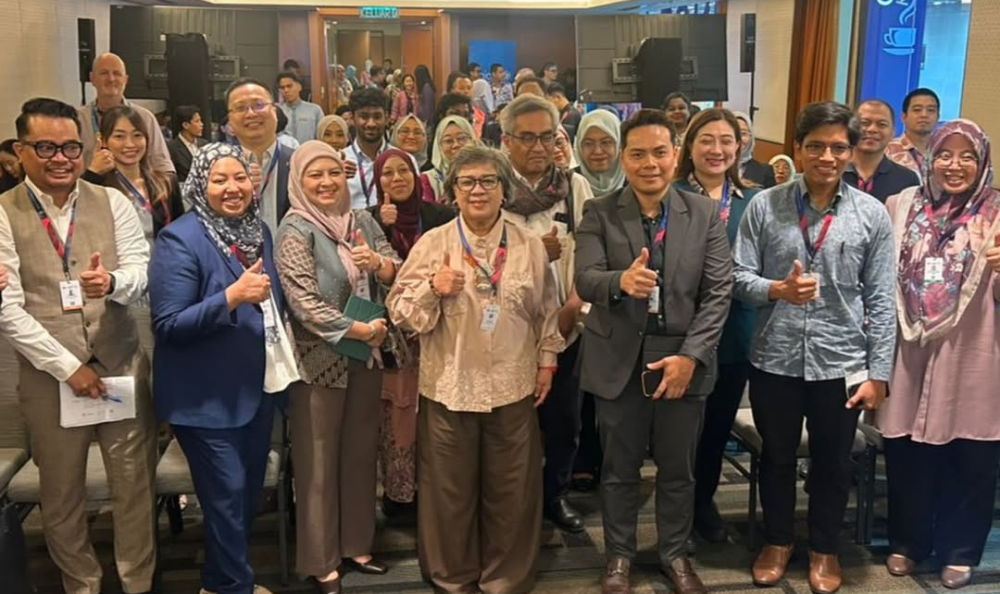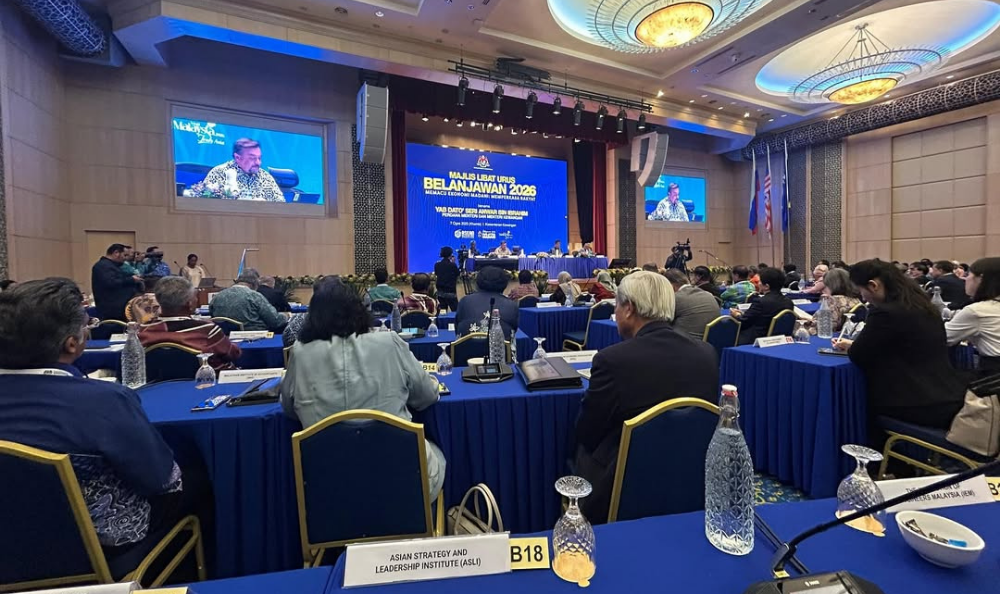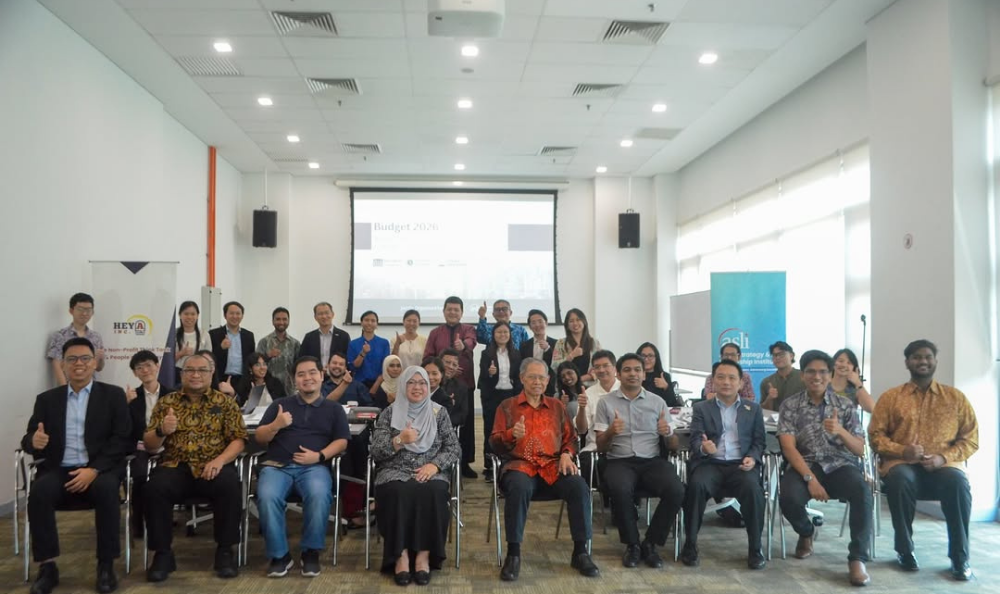
ASLI INSIGHTS: Asia Unpacked | 10 August 2024
ASLI is back with more ASLI INSIGHTS: Asia Unpacked!
Stay tuned for more top news in Asia handpicked by ASLI and for our curated weekly roundup!
This week’s Asia top news:
1) Yunus Takes Helm of Bangladesh Interim Government
Nobel laureate Muhammad Yunus has been sworn in as the head of a 17-member transitional government in Bangladesh, following the collapse of Prime Minister Sheikh Hasina's Awami League government after weeks of large-scale protests. The protests, led by students against controversial civil service job quotas, resulted in over 400 deaths and forced Hasina to flee to India. President Mohammed Shahabuddin administered the oath to Yunus and his team, which includes technocrats and student leaders. With parliament dissolved and Hasina in exile, the main opposition party, BNP, is demanding national elections within three months to restore democratic rule.
Read more:
- https://bernama.com/en/world/news.php?id=2327126
- https://www.aljazeera.com/news/2024/8/8/muhammad-yunus-takes-oath-as-head-of-bangladeshs-interim-government
2) Heatwaves Top Concern in India’s Earnings Calls
India's severe summer heat is emerging as a major challenge for companies, compounding issues like slowing earnings growth and supply chain disruptions. The heat wave was mentioned 80 times in earnings calls for the June quarter, a significant rise from just seven mentions a year earlier. The near-record temperatures adversely impacted sectors by reducing retail footfall, lowering construction productivity, and complicating loan collections. Almost half of the NSE Nifty 50 companies missed analyst expectations, with the heat wave and high raw-material costs being key factors. While some companies benefited from increased demand for cooling products and electricity, the overall outlook is concerning as climate change is expected to intensify, leading to more frequent and prolonged heat waves in the coming decades.
Read more:
3) Infineon Launches World’s Largest Power Semiconductor Plant in Malaysia
Infineon has launched production at its largest-ever power chip plant in Kulim, Malaysia, which will become the world's biggest silicon carbide (SiC) factory once fully operational. The plant is strategically positioned to meet the growing demand from renewable energy, electric vehicles, and AI data centres. Infineon's early production start was facilitated by its virtual link to its development centre in Austria. The plant underscores Malaysia's growing role in the global semiconductor supply chain, complementing Infineon's significant operations in the country. Infineon anticipates substantial revenue from SiC solutions and plans a €5 billion expansion. The move supports Malaysia's efforts to attract high-tech investment and boost its semiconductor industry amid rising global competition.
Read more:
4) Philippines GDP Surges Despite Slow Consumption
The Philippines' GDP grew by 6.3% in the second quarter, surpassing forecasts and the 5.8% growth from the first quarter. Government spending surged 10.7% due to infrastructure projects and defence upgrades, while household spending, which comprises 70-80% of GDP, rose by only 4.6%. Despite the robust growth, high inflation (4.4% in July) and delayed effects from interest rate hikes have weakened consumer spending. The Bangko Sentral ng Pilipinas' key rate stands at 6.5%. The economy's average growth over the past two quarters is 6.0%, aligning with the government's 6-7% annual target. However, economists warn of potential challenges in sustaining this growth due to uneven sector performance and reliance on government spending.
Read more:
5) China’s Export Growth Slows, Raising Concerns
China’s exports grew at their slowest pace in three months in July, increasing by 7% year-on-year, down from June’s 8.6% rise and below the forecasted 9.7%. Analysts attribute the slowdown to tariffs and weakening external demand. Imports, however, rebounded with a robust 7.2% growth, reversing a 2.3% decline in June, driven by a rush to buy chips ahead of anticipated US curbs. Despite government efforts, China’s economic recovery remains fragile, impacted by a property slump and job security concerns. The trade surplus narrowed to $84.65 billion in July. China’s economy grew by 4.7% in Q2, below expectations, prompting calls for more consumer-focused stimulus measures. Increasing global tariffs and trade barriers further threaten China’s export outlook.
Read more:
- https://www.reuters.com/markets/asia/chinas-exports-growth-slows-3-month-low-july-imports-up-solidly-2024-08-07/
- https://www.straitstimes.com/business/china-export-growth-slows-to-3-month-low-in-july-but-imports-up-solidly
🌱 Empowering Leaders, Advancing Societies.




